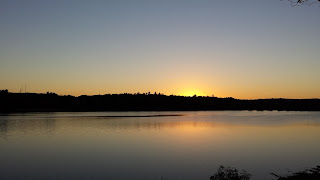Marginalia is a one-page quasi-canonic chorale I composed one afternoon while visiting an old Wooster classmate in Bethesda, MD. Tangentially, in our Wooster days, my friend played banjo and led a bluegrass band which he christened Just North of Nowhere.
In 2015 I composed a set of five pieces for clarinet duet, These Unlikely Events. They did not necessarily grow more unlikely as I composed them. The recent arrangements for four or five instruments would probably not have struck me as very likely, at the time I originally composed the duets.
At King’s Chapel late in October of 2015 we premièred From the Pit of a Cave in the Cloud, a monodrama sung beautifully by Barbara Hill Meyers, the setting of a text by Columbus, Ohio writer Leo Schulte, a text which one member of the ensemble characterized as “disturbing and intense.” The piece was such a signal success, it is fair to say I wanted to follow it up in yet grander style. Why a scene from “The Scottish Play”? It is the horrific story of a man who discards his sense of honor, and indeed who shreds his conscience, in the pursuit of his ambition, and the story of the lives laid waste as a consequence, most tragically, his own wife. Truly, Shakespeare’s work is immortal.
Since, in the playwright’s day, all the parts were played by male actors, I had the idea of inverting that, by casting both roles for female voices.













